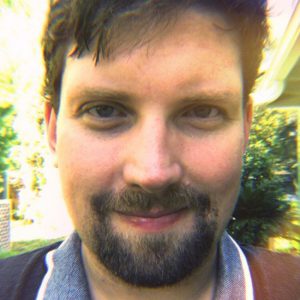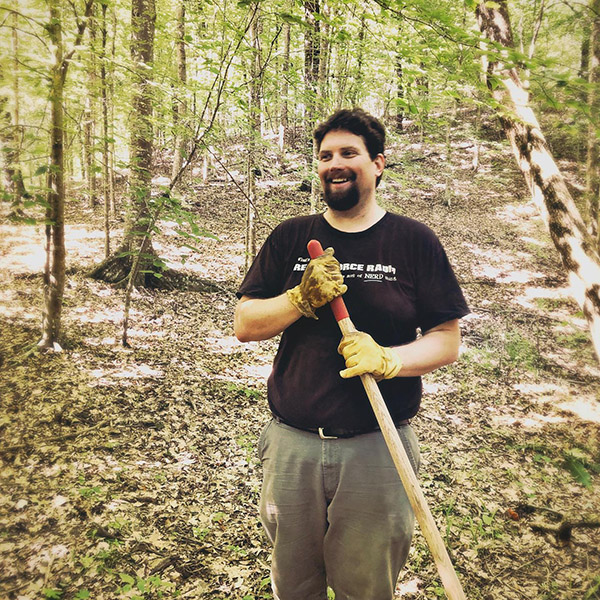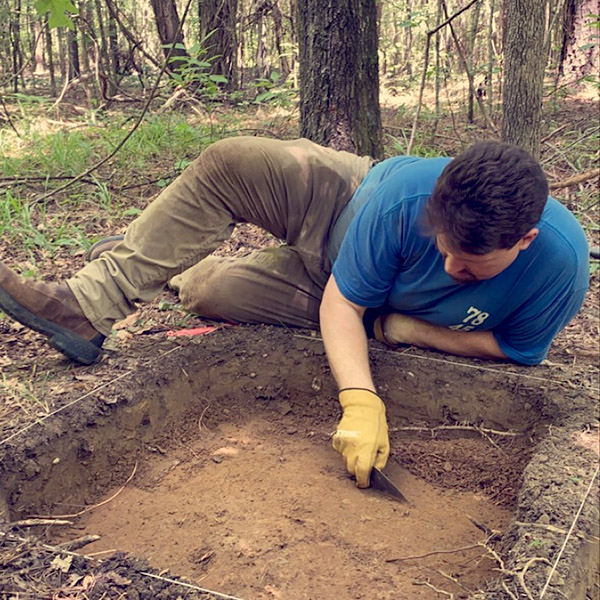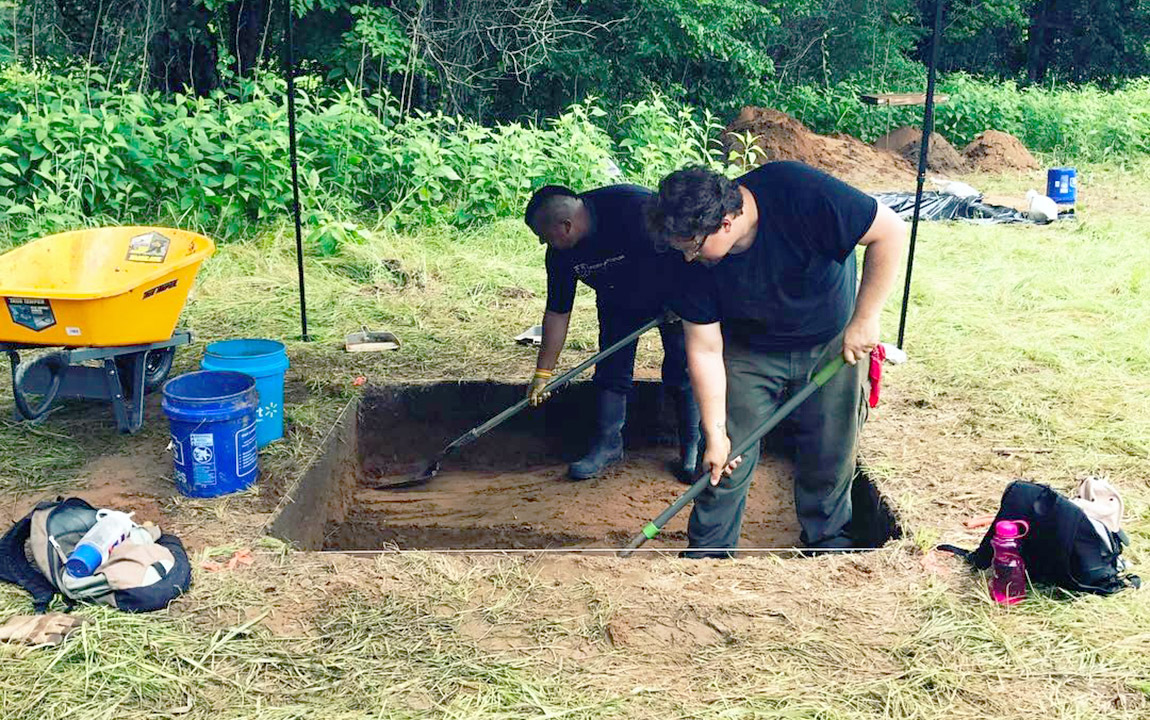
Matthew P. Rooney (PhD, University of Florida, 2021) will start as the new Station Archeologist for the University of Arkansas Monticello research station on July 1, 2021. He will be stepping up to build on the fabulous work performed by his predecessor, Dr. Jodi Barnes, and plans to use his talents and experiences to continue generating public interest and participation in archeology and history projects within the station area.
For the past five years, Matthew has been working with Dr. Charles Cobb in the Historical Archaeology department at the Florida Museum of Natural History (FLMNH), located in Gainesville, Florida. Matthew’s time at FLMNH has been divided between working on projects with the Chickasaw Nation in their ancestral homeland of northeastern Mississippi and developing the Comparative Mission Archaeology Portal (CMAP) by analyzing and digitizing Spanish mission collections from sixteenth and seventeenth century “La Florida.”
Between 2017 and 2019, Matthew spent his summers working with the Chickasaw Explorer program, which brings a group of young Chickasaw leaders every year to their ancestral homelands to participate in archeological investigations and become immersed in Chickasaw heritage at their historic and cultural sites. This brought Matthew into the continued search for Chicasa, the historic home of the Chickasaws who defeated Hernando de Soto in battle in 1541, as well as to his eventual PhD dissertation project: the investigation of Charity Hall, an 1820s mission to the Chickasaws.

Charity Hall was one of dozens of Protestant missions established in the southeastern United States following the passing of the 1819 Civilization Fund Act, which provided funding through the US Department of War to “civilize” Indians through Christian agricultural and industrial missions. Leaders of both the Chickasaw Nation and the Choctaw Nation invited Presbyterian and Baptist missionaries to build these schools on their own land and even provided them with additional financial support in exchange for a western education for their young leaders. Charity Hall is only the second Civilization Fund Act mission to be investigated archeologically, and Matthew was able to show how everyday objects such as tableware ceramics, clothing items, and farming equipment were used by the missionaries as colonial objects to indoctrinate Indian children in European-American ways of living. During the 2019 field season, the Chickasaw Explorers assisted in the excavation of Charity Hall, and several of the young participants recognized the names of their ancestors in the lists of Charity Hall students that Matthew provided to them.
Before working at FLMNH, Matthew received an MA in Applied Anthropology from the University of South Florida (USF) in Tampa, Florida, where he worked alongside local aid groups to develop an Archaeology of Homelessness project. Matthew developed a participant mapping study that was approved by the institution’s internal review board that allowed homeless individuals to mark their daily routines on maps, which allows aid groups to better provide clothing and food on a weekly basis. Matthew also analyzed material culture at homeless camp sites and showed that the stigma surrounding homeless individuals regarding alcoholism and drug addiction is undeserved. Matthew found that other types of food and beverage containers far outnumber the number of alcohol containers found at camp sites, and these assemblages of artifacts are similar to what one would expect to find in any household’s waste.

Matthew also performed undergraduate research while at USF, looking at living spaces of cigar workers in the historic Ybor City of the early twentieth century. Using historic fire insurance maps, city directories, and geographic information systems technology, Matthew was able to show the exact number of square meters occupied by families based on occupation and how these living spaces changed over time. He found that prior to World War I, when most cigars were still rolled by skilled laborers, families enjoyed larger living spaces, but after the war and the introduction of mechanization to the industry, factory owners were able to bring in women and children to operate the machines for lower wages. This was manifested in Matthew’s mapping project in a dramatic decrease in the average living space per family, since many were forced to group up and share houses due to declining wages. Matthew’s Ybor City research was published in The Florida Anthropologist in 2015.
Most recently, Matthew accompanied Dr. Charles Cobb, Dr. Ashley Dumas, and Dr. Vernon James Knight on investigations in southern Alabama into the location of the historic town of Mabila, another city where Hernando de Soto battled with American Indians in 1540 prior to his defeat at Chicasa. The members of the archeological team were tasked with finding Spanish metal artifacts on known Indian village sites, but Matthew says that he must keep what they found a secret for now. Look for an upcoming article or conference paper later this year to see what they found!
Matthew was inspired to become an anthropologist and archeologist by his mother, Dr. Dana Hicks, who is currently the Deputy Director and Collections Manager for the La Jolla Historical Society in San Diego, California. He brings with him to Monticello his two teenaged children, Erin and Quinlan, and he is very excited to work with people in the Monticello station area to together develop a better understanding of the history and archeology of southeastern Arkansas.

